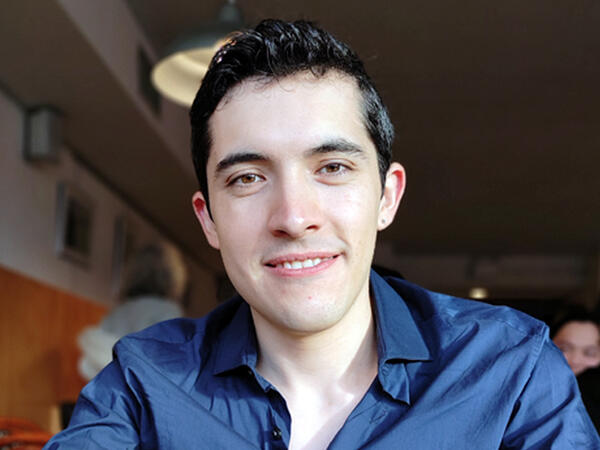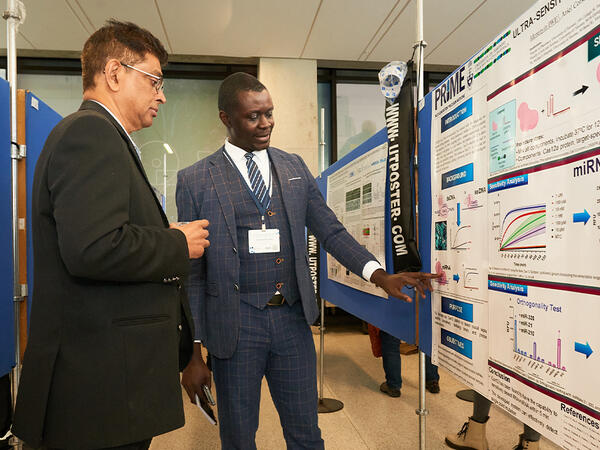
Hagar
Labouta
Keenan Research Center for Biomedical Science
Room 416
Toronto ON
Canada
Area of Research
I am a multidisciplinary researcher leading an innovative research program that intersects nanoscience, microfluidics, and organ-on-a-chip technology. My research is centered on the design and evaluation of novel nanoparticles for drug delivery, with a specific emphasis on their interactions with biological barriers. My primary goal is to bridge the gap between fundamental research and clinical applications by translating this knowledge into the development of safe and efficacious therapies.
Research Challenge
Nanomedicine has enabled new therapeutic modalities with approved nanoparticle-based therapies showing outstanding clinical outcomes. However, some challenges hinder its full potential:
- Predicting Nanoparticle Behavior: The complex biological environment makes it difficult to predict how nanoparticles will behave. Current characterization techniques, which often involve isolating nanoparticles from their natural biological surroundings, can introduce artifacts and hinder accuracy.
- Dynamic Fluid Flow Conditions: In the human body, nanoparticles encounter dynamic fluid flow conditions, which can affect their interactions with biological barriers. The lack of comprehensive models for these interactions hinders the design of effective nanocarriers.
- Prenatal Nanomedicine: There's limited knowledge about how nanoparticles interact with certain biological barriers, such as the placenta. Prenatal nanomedicine remains relatively unexplored, with questions about optimal nanoparticle design and long-term effects on maternal and fetal health.
Proposed Solution
My research program focuses on four interconnected areas to advance nanomedicine.
Fundamental Nanoscience: Understanding how nanoparticles interact with cellular and acellular components using advanced spectroscopic and imaging techniques to improve the translation of nanoparticles.
Microfluidic Nanoparticle Synthesis: Precisely controlling nanoparticle synthesis using microfluidic devices to tailor their properties and drug loading and to develop a big library of nanoparticles that is needed to develop a mechanistic understanding of nanoparticle interaction with biological barriers.
Organ-on-a-Chip Models: Developing dynamic models to study nanoparticle interactions with biological barriers under physiological conditions, considering the impact of mechanical forces on nanoparticle behavior.
Prenatal Nanomedicine: Leveraging nanotechnologies, microfluidics, and organ-on-a-chip technologies to design nanoparticles for maternal and fetal health during pregnancy, addressing unmet medical needs in prenatal care.
Impact to Date
I have made significant contributions to materials science research by engineering and developing a wide variety of polymeric, lipid and inorganic particles with different surface properties, porosities, sizes and charges for use in pharmaceuticals. I am a co-inventor on an international patent for the development of nanosystems for intracellular targeting.
The Labouta team has developed several nanoparticle designs for placental, vascular and tumor targeting, and other applications. The Labouta team has also developed different organ-on-a-chip models, including vessel-on-a-chip, tumor-on-a-chip and placenta-on-a-chip models. We have shown that flow speed and flow-induced changes in cell physiology modulate cellular association of nanoparticles. We were the first to show that placental trophoblast syncytialization (cell fusion) during pregnancy impacts nanoparticle uptake.
Notable Awards
Notable Awards:
- Member of the Year Award, Controlled Release Society, USA
- Interstellar Initiative Award, New York Academy of Sciences, USA
- Nanoscience Program Award, University of Calgary, Canada
- Biomedical Engineering Innovation and Career Development Award, Biomedical Engineering Society, USA
- Apotheker Jacob Prize, Die Apotheker-Jacob-Stiftung, Germany


